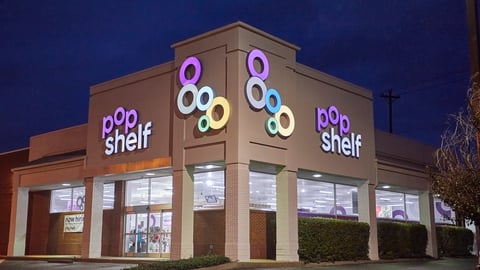Mix of private, nat’l does Goody’s well
KNOXVILLE, TENN. Not even two years after going private under owners GMM Capital and Prentice Capital, Goody’s Family Clothing is beginning to make a turnaround, with a celebrity line landing in stores this September and a new leadership and design team at its helm. Goody’s president Mary Kwan, a former Sears veteran, took some time to talk with Retailing Today about the retailer’s new line with Ashley Judd and where she sees the company going now and in the future. —
RT: What is the purpose of bringing the Ashley Judd line into Goody’s? How will it help the company?
KWAN: The objective of the Judd line is to capture this fashion-involved missy customer and give her product that is more suitable for her lifestyle. We have a good market share of a more traditional business, with brands like Sag Harbor and Alfred Dunner, for customers ages 45 years and up … At the same time, we have a very robust junior business, which really captures the 15- to 25-year-old. But we have a gap in the 30-year-old young mother [category]. She is in need of comfortable clothing suitable to her lifestyle, but she’s not juniors’ and she’s not conservative. We hope that the Ashley Judd line will fill in this white space.
RT: Who would you say is your typical customer?
KWAN: Most of our shoppers—I would say 80%—are female, including shoppers in [the] men’s area. She usually has a family and she is the chief financial officer of the family. She buys for everybody and she is very busy and always looks for value. Value isn’t just price for her, quality also factors in. She’s fashion aware. Her average income is about $51,000.
RT: How do you think the Ashley Judd line compares to other celebrity lines, such as the Bitten line from Sarah Jessica Parker launched at Steve & Barry’s?
KWAN: The Bitten line is very basic, a lot of T-shirts, denim jeans, that type of thing … We will have basics within our line as well, but our focus will be on easy to understand, updated fashion pieces for the season. We will also focus on better fabrics and higher quality. For us, it’s about more than a low price point—it’s also the quality.
The Judd line will be a more holistic way of outfitting this customer. Hopefully it will be a one-stop shopping experience for her. We also will have handbags and shoes and jewelry later on in the season and also intimate apparel as well.
RT: Why decide to partner with Judd for this line?
KWAN: We’re most successful in communities of 100,000 people, and there [are] 21 states that we’re in. Most of our stores are in the Southern states. Ashley Judd is a Southerner. She was born in Kentucky and currently resides in Nashville, Tenn., so our customers can relate to her from that perspective. She’s also a very strong woman who is less of a Hollywood movie star type. She’s well rounded and grounded, so we feel that her values and the values of our company are aligned.
RT: A lot of new faces have come into the company lately (such as former Limited exec Chuck Turlinski taking on the ceo role in February), and you yourself have only been at the company about nine months. Can you talk about goals for the future?
KWAN: We would like to transform our company to more of a specialty store environment within a big box. We want to project and support our key private brands and at the same time add in some power national brands, so we are able to tell an easier, more focused story.
In the past, we’ve probably produced and sourced 20% to 25% of our products directly through our private brand of business. Our goal for 2009 is to produce and source 40% to 50% of our products. We are strengthening the design, the product development and [the] sourcing ends of the business right now.
We also want to continue to expand our proprietary private brands. For example, currently we have Duckhead that is exclusively ours. Ashley Judd, as we develop that, is exclusively ours. We are currently looking at another, more youth-oriented, surf-inspired brand to bring into our portfolio as an exclusive [as well].
RT: What are Goody’s key points of differentiation?
KWAN: The people that we see as competitors are Kohl’s and [JC]Penney, and we have a couple of advantages. We are a smaller box, so it’s easier for us to go into smaller communities. Our average store is 20,000 square feet to 30,000 square feet, while a Kohl’s is around 70,000 [square feet] to 80,000 [square feet], and certainly [JC]Penney is much bigger than that. With a smaller box, we can select the right adjacencies and locations so we can turn a profit much easier than a competitor. In terms of pricing and product line, the more we can distinguish ourselves with exclusive product like the Judd line, the better off we are.
So I think that’s where we have an advantage as we move forward—we move faster because we are smaller.
RT: Both JCPenney and Kohl’s have robust store opening plans for the coming years. What are yours?
KWAN: We have 385 stores and this year we’re looking at 10 new stores. Going forward, we’re looking at 30 to 40 stores. In the next two years, we want to fill in all the opportunity in our geographical area first and branch out from there.






